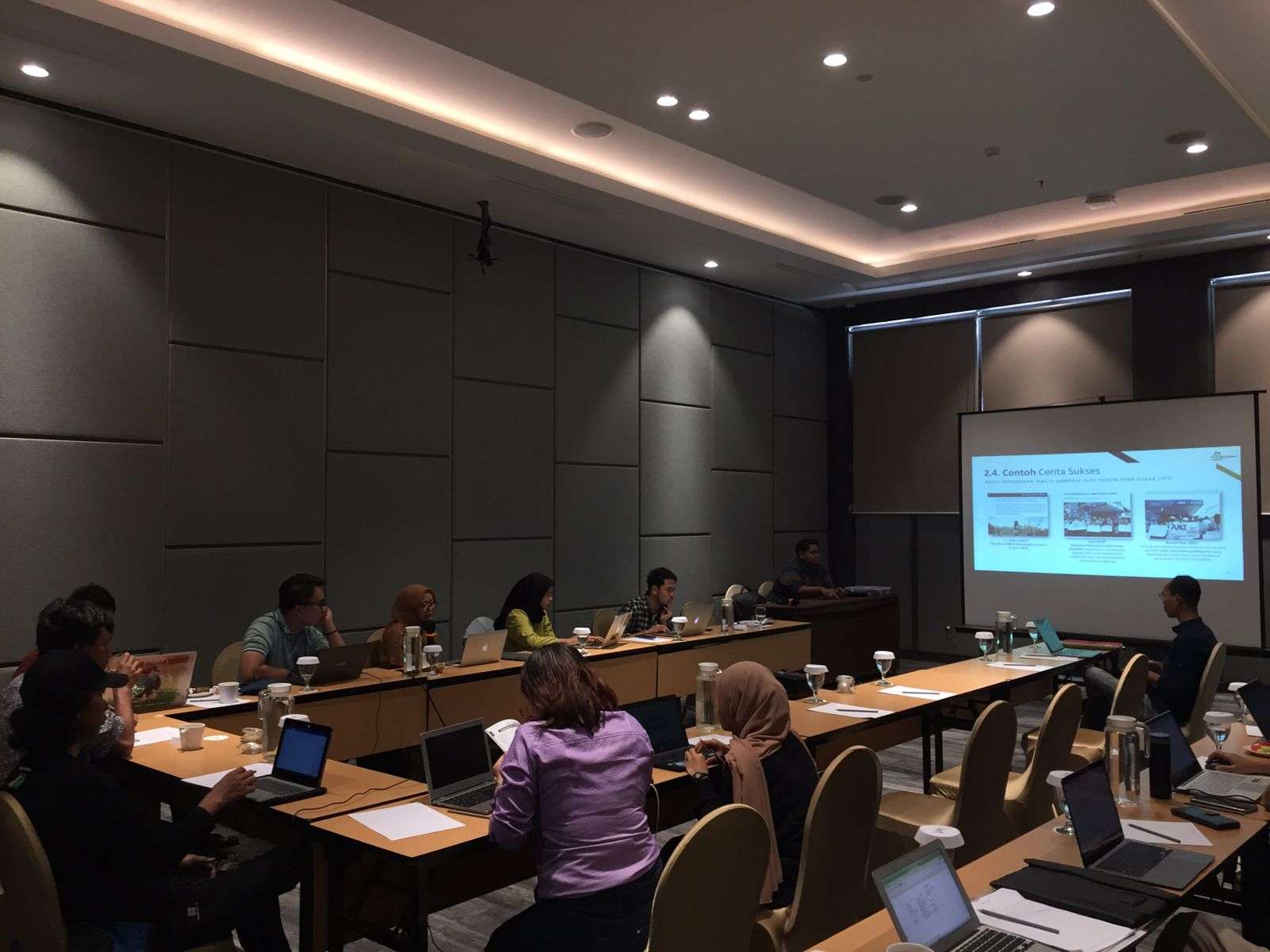11 August 2023 9 menit
Training on High-Risk Industry Monitoring of Human Rights

[av_one_full first min_height=’av-equal-height-column’ vertical_alignment=’av-align-middle’ space=” custom_margin=’aviaTBcustom_margin’ margin=’0px’ margin_sync=’true’ row_boxshadow_color=” row_boxshadow_width=’10’ link=” linktarget=” link_hover=” padding=’0px’ padding_sync=’true’ highlight_size=’1.1′ border=” border_color=” radius=’0px’ radius_sync=’true’ column_boxshadow_color=” column_boxshadow_width=’10’ background=’bg_color’ background_color=” background_gradient_color1=” background_gradient_color2=” background_gradient_direction=’vertical’ src=” attachment=” attachment_size=” background_position=’top left’ background_repeat=’no-repeat’ animation=” mobile_breaking=” mobile_display=” av_uid=’av-el2jev’]
[av_heading heading=’Training on High-Risk Industry Monitoring of Human Rights Violations and Deforestation in Eight Provinces of Indonesia’ tag=’h2′ link_apply=” link=’manually,http://’ link_target=” style=’blockquote modern-quote modern-centered’ size=’30’ subheading_active=” subheading_size=’15’ margin=” margin_sync=’true’ padding=’20’ color=’custom-color-heading’ custom_font=’#000000′ av-medium-font-size-title=’28’ av-small-font-size-title=’24’ av-mini-font-size-title=’22’ av-medium-font-size=” av-small-font-size=” av-mini-font-size=” av_uid=’av-lle69r8p’ admin_preview_bg=”][/av_heading]
[/av_one_full]
[av_one_full first min_height=” vertical_alignment=’av-align-top’ space=” margin=’0px’ margin_sync=’true’ row_boxshadow_color=” row_boxshadow_width=’10’ link=” linktarget=” link_hover=” padding=’0px’ padding_sync=’true’ highlight_size=’1.1′ border=” border_color=” radius=’0px’ radius_sync=’true’ column_boxshadow_color=” column_boxshadow_width=’10’ background=’bg_color’ background_color=” background_gradient_color1=” background_gradient_color2=” background_gradient_direction=’vertical’ src=” attachment=” attachment_size=” background_position=’top left’ background_repeat=’no-repeat’ animation=’fade-in’ mobile_breaking=” mobile_display=” av_uid=’av-buzdhz’]
[av_image src=’https://www.tuk.or.id/wp-content/uploads/WhatsApp-Image-2023-08-10-at-10.13.53-1-1030×773.jpeg’ attachment=’6874′ attachment_size=’large’ align=’center’ styling=” hover=’av-hover-grow av-hide-overflow’ link=’lightbox’ target=” caption=” font_size=” appearance=” overlay_opacity=’0.4′ overlay_color=’#000000′ overlay_text_color=’#ffffff’ copyright=” animation=’fade-in’ av_uid=’av-lle4nipm’ admin_preview_bg=”][/av_image]
[/av_one_full]
[av_one_full first min_height=” vertical_alignment=’av-align-top’ space=” margin=’0px’ margin_sync=’true’ row_boxshadow_color=” row_boxshadow_width=’10’ link=” linktarget=” link_hover=” padding=’0px’ padding_sync=’true’ highlight_size=’1.1′ border=” border_color=” radius=’0px’ radius_sync=’true’ column_boxshadow_color=” column_boxshadow_width=’10’ background=’bg_color’ background_color=” background_gradient_color1=” background_gradient_color2=” background_gradient_direction=’vertical’ src=” attachment=” attachment_size=” background_position=’top left’ background_repeat=’no-repeat’ animation=’fade-in’ mobile_breaking=” mobile_display=” av_uid=’av-a394wn’]
[av_textblock size=” font_color=” color=” av-medium-font-size=” av-small-font-size=” av-mini-font-size=” av_uid=’av-lle4p7a8′ admin_preview_bg=”]
Eight provinces are preparing to further advocate cases involving high-risk industries related to human rights violations and deforestation. Responding to the need for this agenda, TuK INDONESIA conducted monitoring training for these industries and their financing.
On Wednesday to Thursday, August 9-10, 2023, in Jakarta, TuK INDONESIA conducted a Training on Monitoring Financing for High-Risk Businesses in relation to Human Rights Violations and Deforestation. In this agenda, ten (10) institutions from eight (8) provinces in Indonesia were present
[/av_textblock]
[/av_one_full]
[av_two_fifth first min_height=’av-equal-height-column’ vertical_alignment=’av-align-middle’ space=’no_margin’ margin=’0px’ margin_sync=’true’ row_boxshadow_color=” row_boxshadow_width=’10’ link=” linktarget=” link_hover=” padding=’0px’ padding_sync=’true’ highlight_size=’1.1′ border=” border_color=” radius=’0px’ radius_sync=’true’ column_boxshadow_color=” column_boxshadow_width=’10’ background=’bg_color’ background_color=” background_gradient_color1=” background_gradient_color2=” background_gradient_direction=’vertical’ src=” attachment=” attachment_size=” background_position=’top left’ background_repeat=’no-repeat’ animation=” mobile_breaking=” mobile_display=” av_uid=’av-99mluf’]
[av_image src=’https://www.tuk.or.id/wp-content/uploads/WhatsApp-Image-2023-08-09-at-20.26.51-1030×773.jpeg’ attachment=’6876′ attachment_size=’large’ align=’left’ styling=” hover=’av-hover-grow av-hide-overflow’ link=” target=” caption=” font_size=” appearance=” overlay_opacity=’0.4′ overlay_color=’#000000′ overlay_text_color=’#ffffff’ copyright=” animation=’fade-in’ av_uid=’av-lle4ttyj’ admin_preview_bg=”][/av_image]
[/av_two_fifth]
[av_three_fifth min_height=” vertical_alignment=” space=” custom_margin=” margin=’0px’ row_boxshadow=” row_boxshadow_color=” row_boxshadow_width=’10’ link=” linktarget=” link_hover=” padding=’0px’ highlight=” highlight_size=” border=” border_color=” radius=’0px’ column_boxshadow=” column_boxshadow_color=” column_boxshadow_width=’10’ background=’bg_color’ background_color=” background_gradient_color1=” background_gradient_color2=” background_gradient_direction=’vertical’ src=” background_position=’top left’ background_repeat=’no-repeat’ animation=” mobile_breaking=” mobile_display=” av_uid=’av-72r3mf’]
[av_textblock size=” font_color=” color=” av-medium-font-size=” av-small-font-size=” av-mini-font-size=” av_uid=’av-lle4uulf’ admin_preview_bg=”]
The training was organized with the participation of the Deputy Chairman for External Affairs of the National Commission on Human Rights (KOMNAS HAM), Dr. Abdul Haris Semendawai, S.H., LL.M. On this occasion, Dr. Abdul Haris Semendawai gave a presentation on the natural resource extraction industry from human rights perspective. It was stated that the practice of extractive industries has serious implications for the human rights of local communities and the environment, including (1) the right to land and housing as happened in the process of forced evictions and unfair compensation; (2) the right to a healthy environment as a result of massive environmental damage and pollution; (3) the right to participation and information, in this case, the non-partisanship of the community in decision-making and the lack of information regarding the impact of extraction can violate the right to participation and the right to correct information; and the right to economic and social welfare.
[/av_textblock]
[/av_three_fifth]
[av_two_third first min_height=” vertical_alignment=” space=” custom_margin=” margin=’0px’ row_boxshadow=” row_boxshadow_color=” row_boxshadow_width=’10’ link=” linktarget=” link_hover=” padding=’0px’ highlight=” highlight_size=” border=” border_color=” radius=’0px’ column_boxshadow=” column_boxshadow_color=” column_boxshadow_width=’10’ background=’bg_color’ background_color=” background_gradient_color1=” background_gradient_color2=” background_gradient_direction=’vertical’ src=” background_position=’top left’ background_repeat=’no-repeat’ animation=” mobile_breaking=” mobile_display=” av_uid=’av-653oif’]
[av_textblock size=” font_color=” color=” av-medium-font-size=” av-small-font-size=” av-mini-font-size=” av_uid=’av-lle4uulf’ admin_preview_bg=”]
Previously, participants listened to the presentation and engaged in a discussion with Prof. Dr. Bambang Hero Saharjo, M.Agr. regarding the business process of the natural resource extraction industries and their deviations. At least several deviations were identified, occuring within the licensing process, supporting documents such as environmental permits, environmental impact analysis, environmental management plans (RKL), and environmental monitoring plan (RPL), as well as deviations related to obligations that must be fulfilled, such as the 20% obligation for communities in palm oil plantations and specific requirements as stated in peatland context.
Some other presentations that served as knowledge materials and discussion with the training participants included forensic accounting, methods of monitoring financing in the palm oil sector and industrial plantation forests, as well as steps and advocacy strategies based on actor mapping.
[/av_textblock]
[/av_two_third]
[av_one_third min_height=” vertical_alignment=’av-align-top’ space=” margin=’0px’ margin_sync=’true’ row_boxshadow_color=” row_boxshadow_width=’10’ link=” linktarget=” link_hover=” padding=’0px’ padding_sync=’true’ highlight_size=’1.1′ border=” border_color=” radius=’0px’ radius_sync=’true’ column_boxshadow_color=” column_boxshadow_width=’10’ background=’bg_color’ background_color=” background_gradient_color1=” background_gradient_color2=” background_gradient_direction=’vertical’ src=” attachment=” attachment_size=” background_position=’top left’ background_repeat=’no-repeat’ animation=’right-to-left’ mobile_breaking=” mobile_display=” av_uid=’av-4qtu6v’]
[av_image src=’https://www.tuk.or.id/wp-content/uploads/WhatsApp-Image-2023-08-10-at-10.13.57-773×1030.jpeg’ attachment=’6878′ attachment_size=’large’ align=’right’ styling=” hover=’av-hover-grow av-hide-overflow’ link=” target=” caption=” font_size=” appearance=” overlay_opacity=’0.4′ overlay_color=’#000000′ overlay_text_color=’#ffffff’ copyright=” animation=’av-rotateIn’ av_uid=’av-lle4ttyj’ admin_preview_bg=”][/av_image]
[/av_one_third]
[av_one_full first min_height=” vertical_alignment=” space=” custom_margin=” margin=’0px’ row_boxshadow=” row_boxshadow_color=” row_boxshadow_width=’10’ link=” linktarget=” link_hover=” padding=’0px’ highlight=” highlight_size=” border=” border_color=” radius=’0px’ column_boxshadow=” column_boxshadow_color=” column_boxshadow_width=’10’ background=’bg_color’ background_color=” background_gradient_color1=” background_gradient_color2=” background_gradient_direction=’vertical’ src=” background_position=’top left’ background_repeat=’no-repeat’ animation=” mobile_breaking=” mobile_display=” av_uid=’av-24okav’]
[av_textblock size=” font_color=” color=” av-medium-font-size=” av-small-font-size=” av-mini-font-size=” av_uid=’av-lle4uulf’ admin_preview_bg=”]
Various cases that have garnered attention and shared concerns were also discussed during the training agenda. Industries in the palm oil, pulp & paper, and nickel mining sectors emerged are the top three highlighted sectors and were identified as priority issues. The training was important as a collective platform to understand gaps in extractive business practices involving natural resources for effective monitoring, as well as a means to consolidate concerns about the existence of extractive industries in each respective region.
[/av_textblock]
[av_textblock size=” font_color=” color=” av-medium-font-size=” av-small-font-size=” av-mini-font-size=” av_uid=’av-lle4uulf’ admin_preview_bg=”]
#TuKIndonesia
#WALHI
[/av_textblock]
[/av_one_full]
This post is also available in: Indonesian
